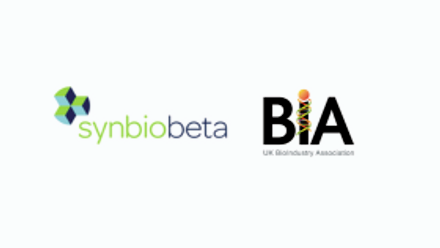CEO update - 9 December 2024
The gradual 12-year NHS plan to roll out a key obesity drug is for me a big missed opportunity. While 3.4 million adults in England are eligible for Mounjaro (tirzepatide), the NHS will initially provide this weight-loss treatment to only 220,000 patients, prioritising those with the greatest clinical need. What’s most interesting for me is that the NICE press release explaining this cites the TBI study that puts wider societal costs of obesity front and centre (despite NICE’s remit to be focused within the NHS budget), and they find the drug is cost-effective on their own narrow terms. But the case argued for why NHS patients need to wait is: "we have had to make this difficult decision in order to protect other vital NHS services". Yet the Health Secretary himself says that "the NHS is broken". When I was on the Vaccine Taskforce, we didn’t wait for NHS primary care to be ready to roll out the vaccines and came up with innovative solutions to deliver health benefits.
The approval of Immunocore's Kimmtrak for the treatment of uveal melanoma, a rare eye cancer, is a welcome reversal of NICE's negative decision last year. The treatment was developed by Immunocore in Oxford, and I was particularly pleased to see that in its press release, NHS England highlighted its "commitment to capitalise on the strength of the UK life sciences industry to benefit NHS patients".
The UK Government was keen to say that it has taken a proactive step in its pandemic preparedness by securing over five million doses of an H5 influenza vaccine, developed by CSL Seqirus. Though this is a welcome step, I am not sure that the UK HSA’s partnership goals are cutting the mustard for important scrutiny groups like the House of Lord’s Science and Technology Committee, who last week wrote to Cabinet Office Minister Pat McFadden calling for a peacetime vaccine taskforce to be set up. The Covid inquiry will go into detail on this early next year.
I’m interested in BIA members' views on this, so do drop me a line, whether you agree or take issue with my early analysis in order to help my thinking.
Planning for 2025
-
Join our webinar on Wednesday
Join us for a free webinar this Wednesday at noon where we’ll be discussing how UK companies can make the most of key global life science conferences in 2025. I’ll be joined by Lin Bateson, Chief Executive at BioPartner UK and JPM and business development veteran Olivia Cavlan, Chief Corporate Development & Strategy Officer at Alchemab Therapeutics, where we’ll discuss how to get the most from JPM week and what else you can do in 2025 if you aren’t going this year.
-
Get into the UK DBT lookbook
If you are travelling to the JP Morgan Healthcare Conference in San Francisco, the Department for Business and Trade (DBT) is putting together a lookbook for the investor connections they have so please complete this short survey to share your objectives to help them can make connections for you.
- Be part of the UK Pavilion at Advanced Therapies Week 2025
The BIA is also hosting the UK Pavilion at Advanced Therapies Week 2025 in Dallas this January. We’re offering eight UK companies the opportunity to demonstrate their expertise in advanced therapies on a global stage. This event will bring together over 2,500 attendees and 250 speakers from around the world, providing excellent networking and exposure. If you’d like to be part of the UK Pavilion, contact Ekin at [email protected] for more details.
New report highlights key areas to support UK EngBio companies
A recent report from the National Physical Laboratory (NPL) and Imperial College London sheds light on the priority areas that can help UK Engineering Biology (EngBio) companies grow and thrive. The focus is on tackling the barriers to commercialization and providing companies with the right tools to scale up their innovations. These recommendations came from a workshop with industry leaders and cover everything from setting up an open repository for data standards to creating clear regulatory guidelines. The goal is to build a solid metrology infrastructure that will support the UK’s bioeconomy and help improve processes across sectors like health, energy, and waste management. It’s exciting to see this kind of collaboration taking place, and I truly believe it’s a vital step toward realizing EngBio’s transformative potential.
An important post-Brexit reminder from the MHRA
Starting on 1 January 2025, all medicines sold in the UK must comply with new labelling rules introduced by the Windsor Framework. This includes a “UK Only” label to differentiate UK products from those in the EU market. The framework restores the MHRA’s full regulatory responsibility for medicines across the UK, simplifying the supply chain while ensuring medicines don’t end up in the EU market. If you haven’t updated your packaging yet, the MHRA is issuing a final reminder to ensure compliance before the deadline.
VPAG webinar
The second 2024 VPAG Operational Review webinar on 13 December has been postponed. The ABPI is in discussion with DHSC on the timings to publish the latest VPAG growth data and 2025 newer product payment rate. Subject to DHSC confirming the data publication, the webinar will be rescheduled to early next week.
Women in Biotech explores early-stage funding for female entrepreneurs
The latest Women in Biotech event in London brought together an expert panel to tackle the critical topic of early-stage funding for female founders. Led by Claire Thompson, CEO of Agility Life Sciences, the discussion featured insights from Dr Susanne Coles, Innovate UK, Bakul Gupta, Deliver Biosciences and Susan Hill, Mestag Therapeutics.
The panel explored challenges in non-dilutive grant funding, long application processes, and the limited scale of funding for major programs. They highlighted the disparity in funding access between the UK and the US while emphasizing the need for role models and community support to boost female-led grant applications. With only 1 in 7 applications coming from female founders, addressing this gap is essential for fostering innovation and growth in the sector.





